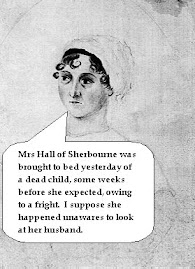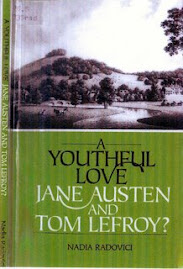You know, if one wants to understand the full meaning of the various literary allusions sprinkled throughout Jane Austen's novels and letters, it is not safe to take them at face value, or even to read the critical notes in the back of the book, which invariably gloss over the raciest bits.
As a friend, who is a great Jane Austenite, is fond of saying: Jane was a child of the 18th Century, not the 19th. The 18th Century was far less squeamish in its attitudes than the century that followed. However, Jane published at the start of the 19th, and so very sneakily made a habit of putting in just a snippet of whichever quote suited her purpose, but nearly always left out the pertinent bits, so really one has to go digging and read the whole thing. In the case of Henry Fielding's Tom Jones, this is proving to be a bit of an undertaking, but it's worth it, and not just because of Tom Lefroy's white coat.
The English Department at the University of Toronto has published the full text of John Gay's fable The Hare and Many Friends here, the source of Mrs Elton's "When a Lady's in the Case" quote, and it is well worth perusing.
There is also a nice little analysis of it on the Republic of Pemberley site here.
Your Sunday Austen Meditation
3 years ago
















No comments:
Post a Comment